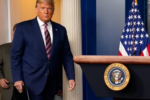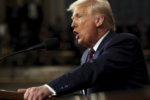In a surprising turn of events, South Carolina State Senator has decided to withdraw his protest against the election results just one day before a scheduled hearing. The protest, which was aimed at challenging the results of the recent election, had garnered significant attention as it raised questions about election integrity and the process.
The senator, who had been a vocal critic of the election, faced mounting pressure from both political allies and opponents to reconsider his position. With the hearing set to take place in the coming days, the senator’s decision to back down from the legal challenge marks a significant moment in the ongoing discussions about electoral transparency and fairness.
Political Implications and Public Reaction
The withdrawal of the protest has sparked mixed reactions across the political spectrum. Supporters of the senator’s decision argue that it reflects a commitment to the integrity of the electoral process, while critics view it as a retreat under pressure. This development comes at a time when election-related controversies are at the forefront of political discourse in the state.
While the immediate implications of this withdrawal are still unfolding, experts believe that it may serve as a catalyst for future debates on electoral reform. The protest’s initial intention to challenge the legitimacy of the election results had already raised questions about the need for more robust measures to ensure the accuracy and fairness of elections.
For more detailed coverage on South Carolina’s election challenges, visit WMBF News.
The senator’s decision is seen as part of a larger national trend of election-related protests, which have become increasingly common in the United States in recent years. As this case comes to a close, the broader implications for future elections in South Carolina and beyond remain uncertain.
In conclusion, the senator’s withdrawal from his election protest signifies a key moment in the ongoing conversation about election integrity. It also highlights the complex nature of political protests and the impact they can have on public perception and policy.
Note: Every piece of content is rigorously reviewed by our team of experienced writers and editors to ensure its accuracy. Our writers use credible sources and adhere to strict fact-checking protocols to verify all claims and data before publication. If an error is identified, we promptly correct it and strive for transparency in all updates.








